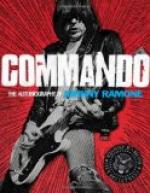Then we stayed a few days on Mr. Brown’s farm, where a great many little commandos congregated that were camped on the banks of the river. Our horses became quite sleek again from the abundance of mealies they got there. On that farm we first used for fuel the poles that fenced in the farm. I distinctly remember how, after we had received the order from Commandant Kemp, we waited until after dark before pulling up the poles, and how grieved we were at the necessity for doing it. Since that time we have got over such scruples. Even if there were wood to be had on an outspan place, there was always a race to procure the best poles. Of course, when there was abundance of wood, the pulling up of poles was strictly prohibited.
At that time I made the acquaintance of a nephew of mine, Paul Mare, a boy of fourteen, with a noble countenance, who, like so many others of the same age, rode about with gun and bandolier, and was full of courage. When the enemy approached his mother’s house he prepared for flight, but she took it for a joke. When she noticed that he was in earnest, she forbade him to go, as his father had been killed already, and he would in all probability be killed too. He merely answered, ‘Because they have shot my father, I mean to shoot them now,’ and rode away.
We did not like remaining long in one place doing nothing. We always became impatient, and wished to know when we could move on. But the Commandant always answered that he could not tell. And the more sensible of us thought, ‘It depends on khaki.’ This was really the case now. On the evening of January 28 we got the order to be in readiness. While General Beyers, with 400 or 500 men, passed to the rear of the enemy to destroy the Boksburg mines, our commando of horsemen moved rapidly in the direction of Boesmanskop in the Heidelberg district, to cut off the enemy who were pushing on to our part of the Hoogeveld. We arrived at Boesmanskop the following morning.
The parts of the country that we now passed through had not yet been destroyed by the enemy, but everywhere else the houses and farms were burnt and ruined in the most barbarous way. We were very anxious, therefore, to cut off the enemy’s advance. They were camped to the north-west of Boesmanskop. A strong Boer guard occupied this kopje—the, only one in the neighbourhood; for the rest, the surroundings were the ordinary Hoogeveld with its mounds. We pushed up in a long line over a ‘bult’ that ran north-west of Boesmanskop. Our guns—only a few, as most had been sent away to be repaired—stood on top of this mound without any cover. Lieutenant Odendaal, a very brave gunner, did not like kopjes, but always placed his cannon on a mound, as the enemy’s guns always fired too short or too long on account of the misleading distances. They did so in this instance, and the bombs flew far beyond us. Corporal Botman ordered me to stay with the horses at the foot of the ‘bult,’ while the burghers crept on to the top a few hundred paces further, expecting eventually to charge the enemy. Suddenly I heard, twice over, a noise like that of a train in the distance. My brother told me afterwards how he had seen a detachment of the enemy storming Boesmanskop, and how the burghers waited until they were close by, and then beat them back completely with a twice-repeated salvo.




